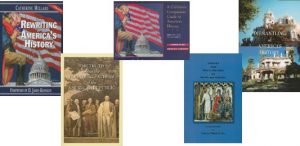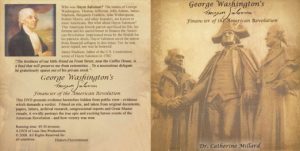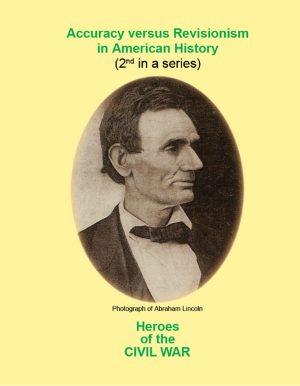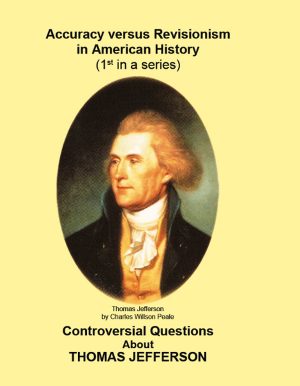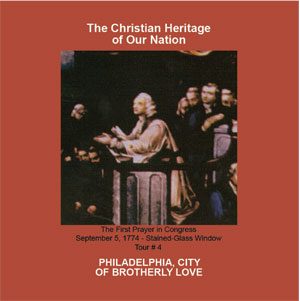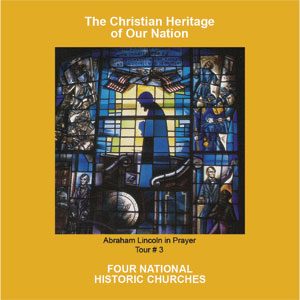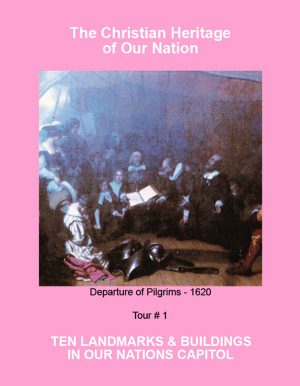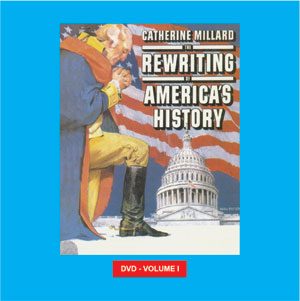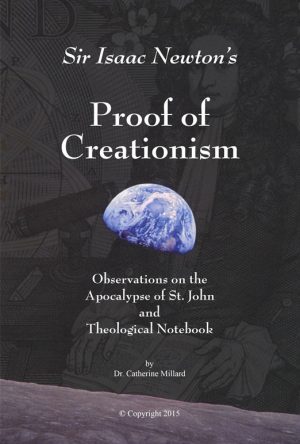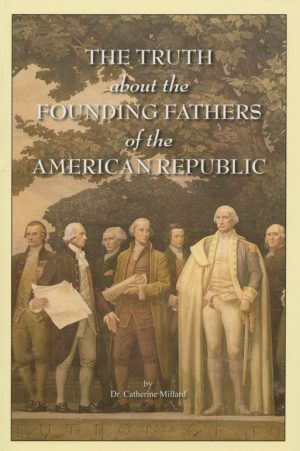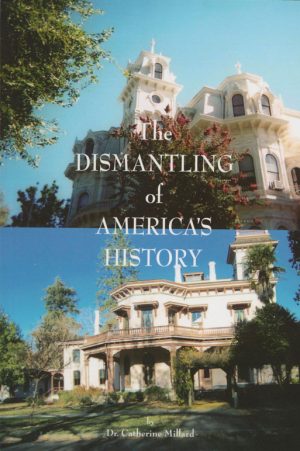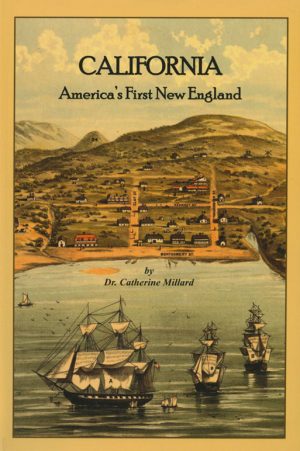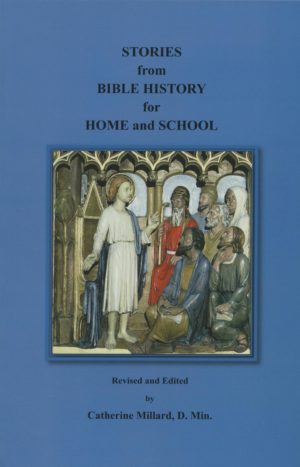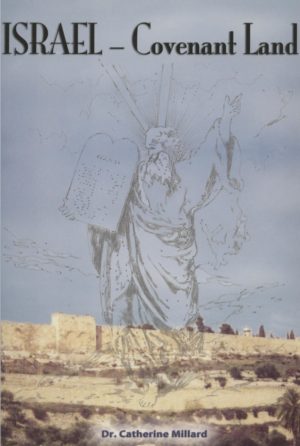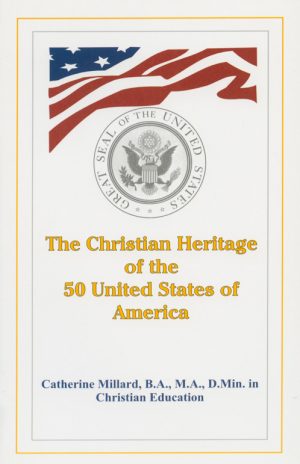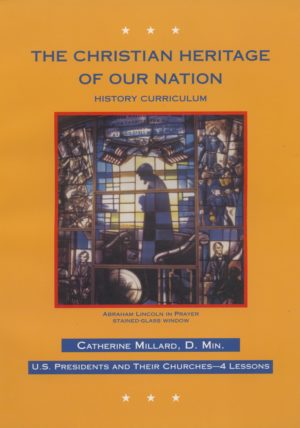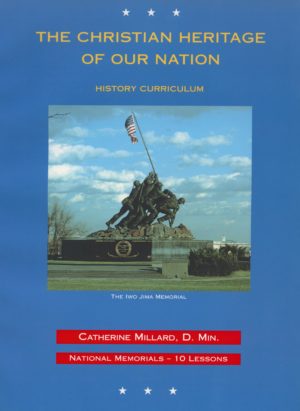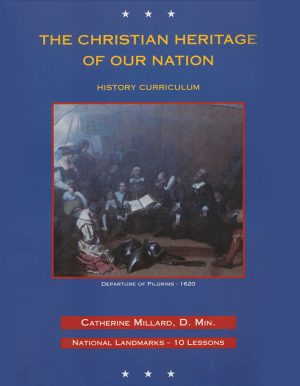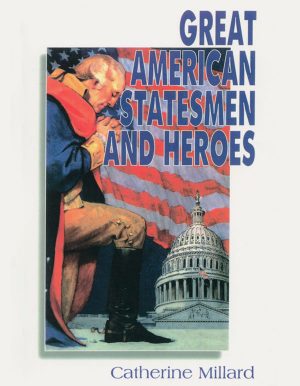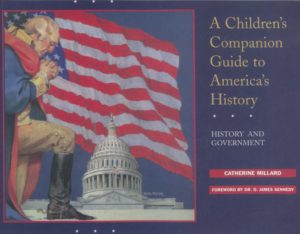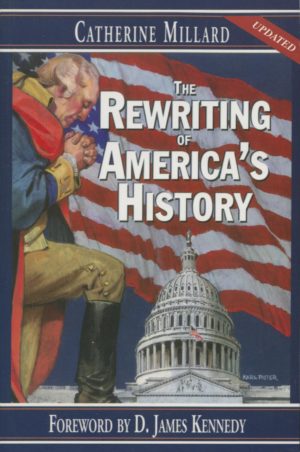| 1751
|
Born March 16th in Port Conway, Virginia |
| 1771
|
Graduated from College of New-Jersey (Princeton)
|
| 1776
|
Member of the Virginia Convention |
| 1778-79
|
Member of the Governor’s Council |
| 1780-83
|
Member of the Congress of Confederation |
| 1784-86
|
Member of the Virginia legislature |
| 1786
|
Delegate to the Convention at Annapolis |
| 1787
|
Delegate to the Constitutional Convention |
| 1787
|
Signed the United States Constitution |
| 1788
|
Member of the Virginia Ratification Convention
|
| 1789-97
|
Member of the United States Congress |
| 1789-97
|
Member of the Virginia Ratification Convention
|
| 1799-1800
|
Member of the Virginia legislature |
| 1801-09
|
Secretary of State of the United States |
| 1809-17
|
President of the United States
|
| 1836
|
Died on June 25th at Montpelier, Virginia |
A syndicated article entitled, “Nation’s Unchristian Origins” by Steven Morris, Special to the Los Angeles Times, appeared in the Wichita Eagle newspaper’s August 21, 1995 edition. It read, “James Madison, fourth president and father of the Constitution wrote: ‘During almost 15 centuries has the legal establishment of Christianity been on trial. What have been its fruits? More or less in all places, pride and indolence in the Clergy, ignorance and servility in the laity; in both, superstition, bigotry and persecution.’ ” Did James Madison pen these words?
James Madison wrote his famed “A Memorial and Remonstrance – against the general Assessment, presented to the General Assembly of Virginia, at the Session for the year of our Lord, one thousand seven hundred and eighty five.” Signed by over 1,500 persons and submitted to the October, 1785 session of the Virginia Assembly, it was an appeal for freedom of worship of the Protestant Christian denominations, against the general Assessment Bill. Among the signers of Madison’s Memorial and Remonstrance, were, Rev. Isaac Stockton Keith, D.D., pastor of the Old Presbyterian Meeting House, Alexandria, Virginia (where George Washington worshipped frequently); General Daniel Roberdeau, and other members of the congregation.1
Steven Morris’ syndicated article, “Nation’s Unchristian Origins” took James Madison’s famed document of American history out of context, reversing its true meaning. In this document, Madison is remonstrating against an established, state-controlled church, that he calls “the legal establishment,” such as the Anglican church in Virginia, which had forced all citizens to attend its services and pay tithes, and which had persecuted all other Christian churches, such as the Baptists, Methodists, Presbyterians, Mennonites, Quakers, etc. All these other Christian churches could not hold their own services, nor could they preach the Gospel without permission from the Anglican church. In Virginia, the Baptists had been imprisoned on occasion, for worshipping God in their own way, and for preaching the Gospel outside the Anglican church. Following is James Madison’s brilliant argument, in context:
TO THE HONOURABLE THE GENERAL ASSEMBLY OF THE
COMMONWEALTH OF VIRGINIA
We the subscribers, citizens of the said Commonwealth, having taken into serious consideration a bill, printed by order OF THE LAST SESSION OF General Assembly, entitled, “A bill establishing a provision for teachers of the Christian Religion,” and conceiving, that the same, if finally armed with the sanction of a law, will be a dangerous abuse of power; are bound, as faithful members of a free State, to remonstrate against it, and to declare the reasons by which we are determined. We remonstrate against the said bill.
Because we hold it for a fundamental and unalienable truth, that religion, or the duty which we owe to the Creator, and the manner of discharging it, can be directed only by reason and conviction, not by force or violence. The religion, then, of every man, must be left to the conviction and conscience of every man; and it is the right of every man to exercise it as this may dictate. This right is, in its nature, an unalienable right. It is unalienable, because the opinions of men depending only on the evidence contemplated by their own minds, cannot follow the dictates of other men. It is unalienable, also, because what is here a right towards man, is a duty towards the Creator. It is the duty of every man to render to the Creator such homage, and such only as he believes to be acceptable to him. This duty is precedent both in order and time, and in degree of obligation, to the claims of civil society. Before any man can be considered as a member of civil society, he must be considered as a subject of the Governor of the Universe. And if a member of civil society, who enters into any subordinate association, must always do it with a reservation of his duty to the general authority; much more must every man, who becomes a member of any particular civil society, do it with a saving of his allegiance to the Universal Sovereign. We maintain, therefore, that in matters of religion, no man’s right is abridged by the institution of civil society; and that religion is wholly exempt from its cognizance. True it is, that no other rule exists by which any question, which may divide society, can be ultimately determined, but by the will of a majority; and it is also true, that the majority may trespass on the rights of the minority.
Because if religion be exempt from the authority of the society at large, still less can it be subject to that of the legislative body. The latter are but the creatures and vicegerents of the former. Their jurisdiction is both derivative and limited. It is limited with regard to the co-ordinate departments; more necessarily, it is limited with regard to the constituents. The preservation of a free government requires, not merely that the metes and bounds which separate each department of power, be invariably maintained; but more especially, that neither of them be suffered to overleap the great barrier which defends the rights of the people. The rulers, who are guilty of such an encroachment, exceed the commission from which they derive their authority, and are tyrants. The people who submit to it, are governed by laws made neither by themselves, nor by an authority derived from them, and are slaves.
Because it is proper to take alarm at the first experiment on our liberties. We hold this prudent jealousy to be the first duty of citizens, and one of the noblest characteristics of the late Revolution. The freemen of America did not wait until usurped power had strengthened itself by exercise, and entangled the question in precedents. They saw all the consequences in the principle, and they avoided the consequences by denying the principle. We revere this lesson too much, soon to forget it. Who does not see that the same authority, which can establish Christianity in exclusion of all other religions, may establish, with the same ease, any particular sect of Christians, in exclusion of all other sects; that the same authority, which can force a citizen to contribute threepence only of his property, for the support of any one establishment, may force him to conform to any other establishment, in all cases whatsoever?
Because the bill violates that equality which ought to be the basis of every law; and which is more indispensable in proportion as the validity or expediency of any law is more liable to be impeached. “If all men are, by nature, equally free and independent,” all men are to be considered as entering into society on equal conditions, as, relinquishing no more, and, therefore, retaining no less one than another, or their natural rights; above all are they to be considered as retaining an “equal title to the free exercise of religion according to the dictates of conscience.” Whilst we assert for ourselves a freedom to embrace, to profess, and observe the religion which we believe to be of Divine origin, we cannot deny an equal freedom to those, whose minds have not yet yielded to the evidence which has convinced us. If this freedom be abused, it is an offence against God, not against man. To God, therefore, and not to man, must an account of it be rendered.
As the bill violates equality, by subjecting some to peculiar burdens; so it violates the same principle, by granting to others peculiar exemptions. Are the Quakers and Mennonites the only sects who think a compulsive support of their religions unnecessary and unwarrantable? Can their piety alone be entrusted with the care of publick worship? Ought their religions to be endowed, above all others, with extraordinary privileges, by which proselytes may be enticed from all others? We think too favourably of the justice and good sense of these denominations to believe, that they either covert pre-eminences over their fellow citizens, or that they will be seduced by them from the common opposition to the measure.
Because the bill implies, either that the civil magistrate is a competent judge of religious truths, or that he may employ religion as an engine of civil policy. The first is an arrogant pretension, falsified by the extraordinary opinion of rulers, in all ages, and throughout the world; the second, an unhallowed perversion of the means of salvation.
Because the establishment proposed by the bill, is not requisite for the support of the Christian religion itself; for every page of it disavows a dependence on the power of this world; it is a contradiction to fact, for it is known that this religion both existed and flourished, not only without the support of human laws, but in spite of every opposition from them; and not only during the period of miraculous aid, but long after it had been left to its own evidence and the ordinary care of Providence: nay, it is a contradiction in terms; for a religion, not invented by human policy must have pre-existed and been supported before it was established by human policy; it is, moreover, to weaken in those, who profess this religion, a pious confidence in its innate excellence, and the patronage of its Author; and to foster in those, who still reject it, a suspicion that its friends are too conscious of its fallacies, to trust it to its own merits.
Because experience witnesses that ecclesiastical establishments, instead of maintaining the purity and efficacy of religion, have had a contrary operation. During almost fifteen centuries has the legal establishment of Christianity been on trial. What have been its fruits? More or less in all places, pride and indolence in the clergy; ignorance and servility in the laity; in both superstition, bigotry, and persecution. Inquire of the teachers of Christianity for the ages in which it appears in its greatest lustre; those of every sect point to the ages prior to its incorporation with civil policy. Propose a restoration of this primitive state, in which its teachers depended on the voluntary rewards of their flocks, many of them predict its downfall. On which side ought their testimony to have the greatest weight, when for, or when against their interest?
Because the establishment in question is not necessary for the support of civil government, only as it is a means of supporting religion, and it be not necessary for the latter purpose, it cannot be necessary for the former. If religion be not within the cognizance of civil government, how can its legal establishment be said to be necessary to civil government? What influence, in fact, have ecclesiastical establishments had on civil society? In some instances, they have been seen to erect a spiritual tyranny on the ruins of the civil authority; in more instances, have they been seen upholding the thrones of political tyranny; in no instance have they been seen the guardians of the liberties of the people. Rulers who wished to subvert the publick liberty, may have found on established clergy convenient auxiliaries. A just government instituted to secure and perpetuate it, needs them not. Such a government will be best supported by protecting every citizen in the enjoyment of his religion with the same equal hand which protects his person and property; by neither invading the equal rights of any sect, nor suffering any sect to invade those of another.
Because the proposed establishment is a departure from that generous policy, which, offering an asylum to the persecuted and oppressed of every nation and religion, promised a lustre to our country, and an accession to the number of its citizens. What a melancholy mark is the bill, of sudden degeneracy? Instead of holding forth an asylum to the persecuted, it is itself a signal of persecution. It degrades from the equal rank of citizens, all those whose opinions in religion do not bend to those of the legislative authority. Distant as it may be, in its present form, from the inquisition, it differs from it only in degree, the one is the first step, the other the last, in the career of intolerance. The magnanimous sufferer under the cruel scourge in foreign regions, must view the bill as a beacon on our coast, warning him to seek some other haven where liberty and philanthropy in their due extent may offer a more certain repose for his troubles.
Because it will have a like tendency to banish our citizens. The allurements presented by other situations, are every day thinning their number. To superadd a fresh motive to emigration, by revoking the liberty which they now enjoy, would be the same species of folly, which has dishonoured and depopulated flourishing kingdoms.
Because it will destroy that moderation and harmony, which the forbearance of our laws to intermeddle with religion has produced among its several sects. Torrents of blood have been spilt in the old world, by vain attempts of the secular arm to extinguish religious discord, by proscribing all differences in religious opinion. Time has at length revealed the true remedy. Every relaxation of narrow and rigorous policy, wherever it has been tried, has been found to assuage the disease. The American theatre has exhibited proofs, that equal and complete liberty, if it does not wholly eradicate it, sufficiently destroys its malignant influence on the health and prosperity of the State. If with the salutary effects of this system under our own eyes, we begin to contract the bounds of religious freedom, we know no name that will so severely reproach our folly. At least, let warning be taken at the first fruits of the threatened innovation. The very appearance of the bill has transformed “that Christian forbearance, love and charity,”* which of late mutually prevailed, into animosities and jealousies, which may not soon be appeased. What mischiefs may not be dreaded, should this enemy to the publick quiet be armed with the force of law?
Because the policy of the bill is adverse to the diffusion of the light of Christianity. The first wish of those, who ought to enjoy this precious gift, ought to be, that it may be imparted to the whole race of mankind. Compare the number of those, who have as yet received it, with the number still remaining under the dominion of false religions, and how small is the former! Does the policy of the bill tend to lessen the disproportion? No; it at once discourages those who are strangers to the light of truth, from coming into the regions of it; and countenances, by example, the nations who continue in darkness, in shutting out those who might convey it to them. Instead of leveling, as far as possible, every obstacle to the victorious progress of truth, the bill, with an ignoble and unchristian timidity, would circumscribe it, with a wall of defence against the encroachments of error.
Because an attempt to enforce by legal sanctions, acts, obnoxious to so great proportion of citizens, tends to enervate the laws in general, and to slacken the bands of society. If it be difficult to execute any law, which is not generally deemed necessary nor salutary, what must be the case when it is deemed invalid and dangerous? And what may be the effect of so striking an example of impotency in the government on its general authority?
Because a measure of such singular magnitude and delicacy, ought not to be imposed without the clearest evidence that it is called for by a majority of citizens; and no satisfactory method is yet proposed, by which the voice of the majority in this case may be determined, or its influence secured. “The people of the respective counties are, indeed, requested to signify their opinion, respecting the adoption of the bill to the next session of Assembly.” But the representation must be made equal, before the voice, either of the representatives, or of the counties, will be that of the people. Our hope is that neither of the former will, after due consideration, espouse the dangerous principle of the bill. Should the event disappoint us, it will still leave us in full confidence, that a fair appeal to the latter will reverse the sentence against our liberties.
Because, finally, “the equal right of every citizen to the free exercise of his religion according to the dictates of his conscience” is held by the same tenure with all our other rights. If we recur to its origin, it is equally the gift of nature; if we weight its importance, it cannot be less dear to us; if we consult the “Declaration of those rights which pertain to the good people of Virginia, as the basis and foundation of government,” it is enumerated with equal solemnity, or rather with studied emphasis. Either then we must say that the will of the Legislature is the only measure of our authority; and that in the plenitude of this authority, they may sweep away all our fundamental rights; or, that they are bound to leave this particular right untouched and sacred; either we must say, that they may control the freedom of the press; may abolish the trial by jury; may swallow up the executive and judiciary power of the State; nay, that they may annihilate our very right of suffrage, and erect themselves into an independent and hereditary assembly; or we must say that they have no authority to enact into a law, the bill under consideration. We the subscribers say, that the General Assembly of the Commonwealth have no such authority; and that no effort may be omitted on our part against so dangerous an usurpation, we oppose to it this Remonstrance, earnestly praying, as we are in duty bound, that the Supreme Lawgiver of the Universe by illuminating those to whom it is addressed, may, on the one hand, turn their councils from every act which would affront His holy prerogative, or violate the trust committed to them; and, on the other, guide them into every measure which may be worthy of His blessing, may redound to their own praise, and may establish more firmly the liberties, the property, and the happiness of this Commonwealth.2
James Madison’s above-quoted 1785 “A Memorial and Remonstrance,” is a forerunner to the First Amendment or “Establishment” Clause to the United States Constitution, which means, in context, “Separation of Church from interference by the State,” or “Prohibition of Congress to establish a State-controlled Church.”
To learn more, click here. (Founders’ book)
___________________________
Bibliography:
1
Archives of the Old Presbyterian Meeting House, Alexandria, Virginia.
2
Madison, James. A Memorial and Remonstrance against the General Assessment, presented to the General Assembly of Virginia, at the Session for the year of our Lord, one thousand seven hundred and eighty five. (October, 1785 session of the Virginia General Assembly.) Library of Congress, Rare Book Collection.
